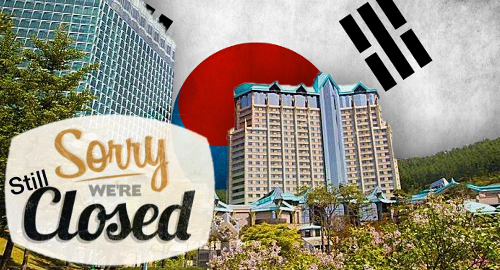 South Korea’s largest casino has extended its shutdown caused by the rampant spread of the country’s coronavirus infection rates.
South Korea’s largest casino has extended its shutdown caused by the rampant spread of the country’s coronavirus infection rates.
Last month, the Kangwon Land casino announced that it was shutting its gaming operations starting February 23 and extending through February 26 due to “growing concern about community infections” of the COVID-19 virus. That shutdown was later extended to February 29 after the government declared its highest possible alert due to a dramatic spike in the number of infections.
On Friday, Kangwon Land announced that the extension would be extended again, this time until 6am on Monday, March 9. The brief announcement didn’t specify whether this latest extension was taken at its own behest or at the request/order of the South Korean government.
On Monday, the government announced nearly 600 new confirmed cases of COVID-19 infection, bringing its total infection count to 4,335, now officially the largest outbreak outside China. Of these infections, 26 individuals have died.
Kangwon Land, the only South Korean casino at which local residents are legally permitted to gamble, previously stated that it expected to lose around $22m from its shutdown through February 29, based on its 2019 average daily revenue. The company’s latest update didn’t offer a revised figure for how big a loss it now expects to record, but it’s likely in the area of $50m.
South Korea’s two largest foreigner-only casino operators – Grand Korea Leisure (GKL) and Paradise Co Ltd – have yet to follow Kangwon Land’s lead and close their gaming operations. That may be due to the fact that Kangwon Land’s unique status as a locals-friendly venue makes it subject to more stringent oversight.
GKL said its February revenue was up 38.1% year-on-year to KRW44b (US$36.9m), although the gain is a reflection of a temporary incentive structure for VIP and premium mass gaming segments in February 2018. Compared with January 2019’s results, sales fell nearly one-fifth as table drop fell by more than one-quarter.
